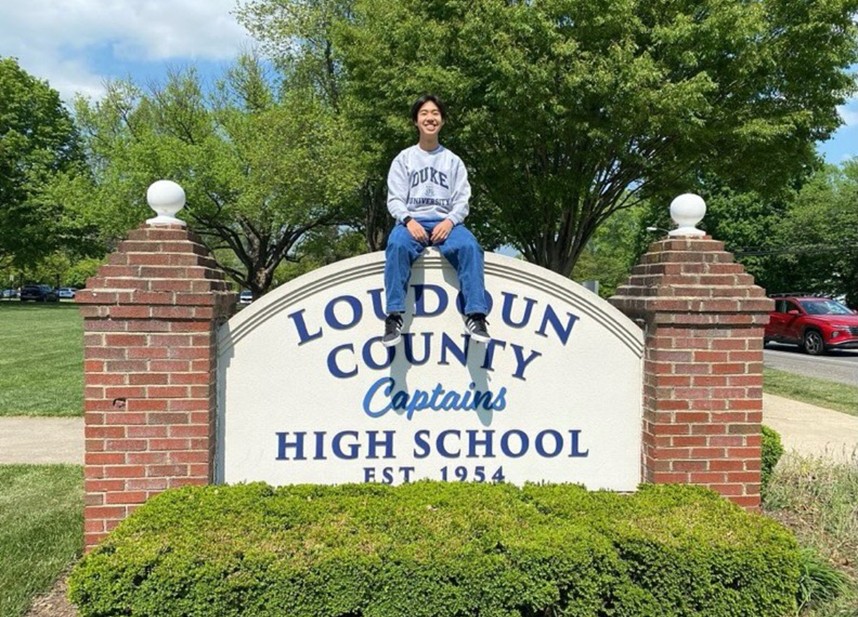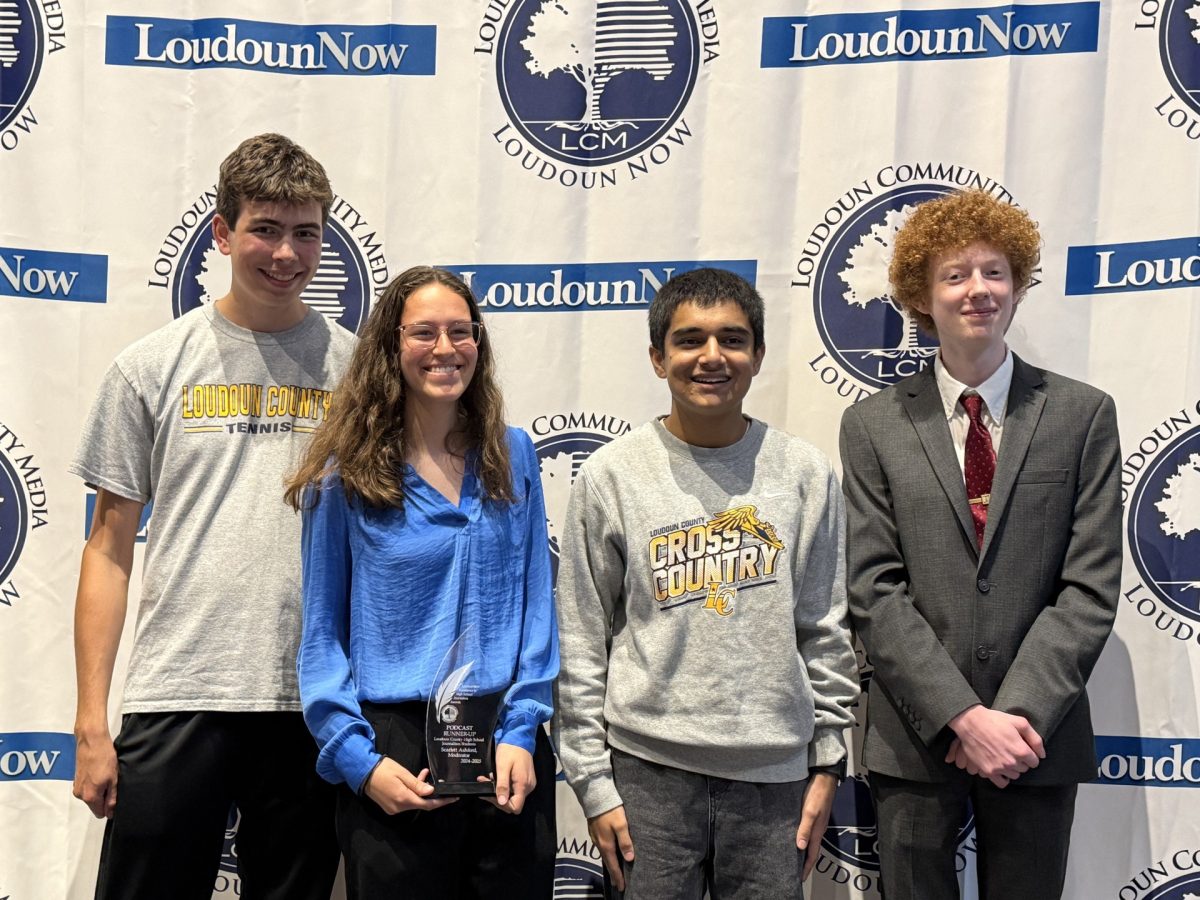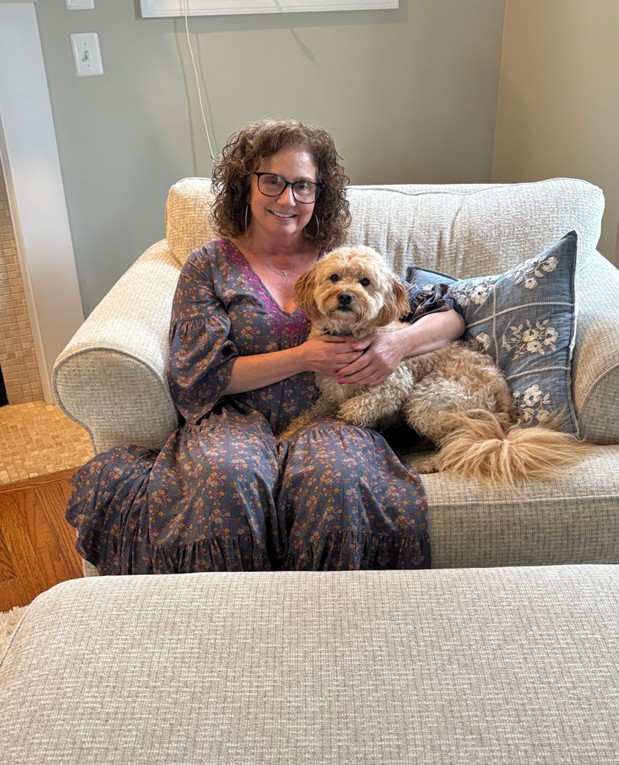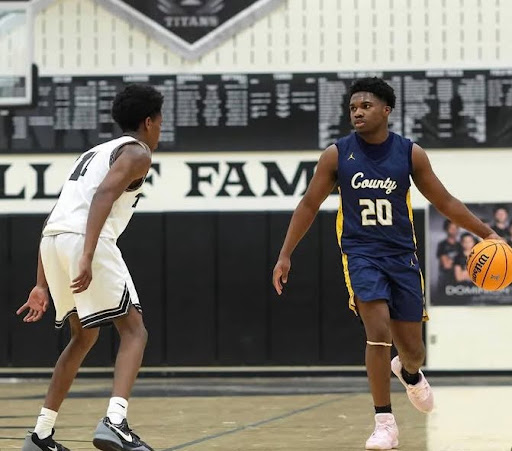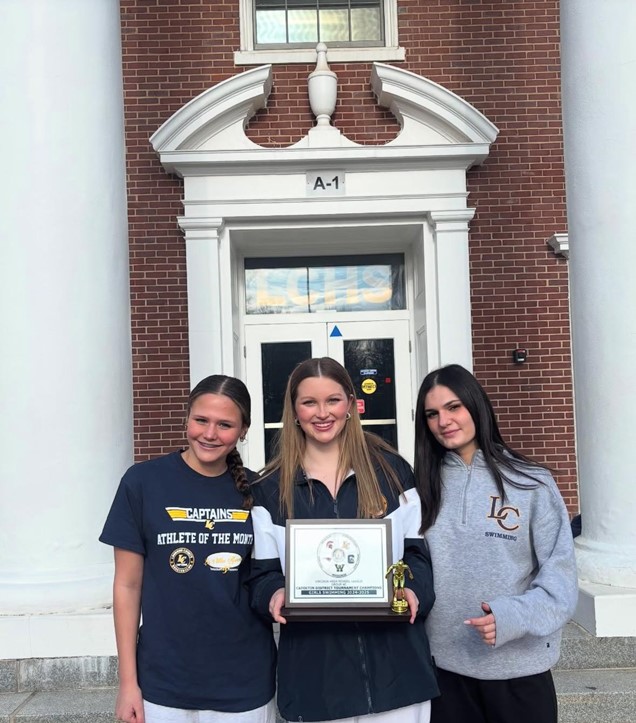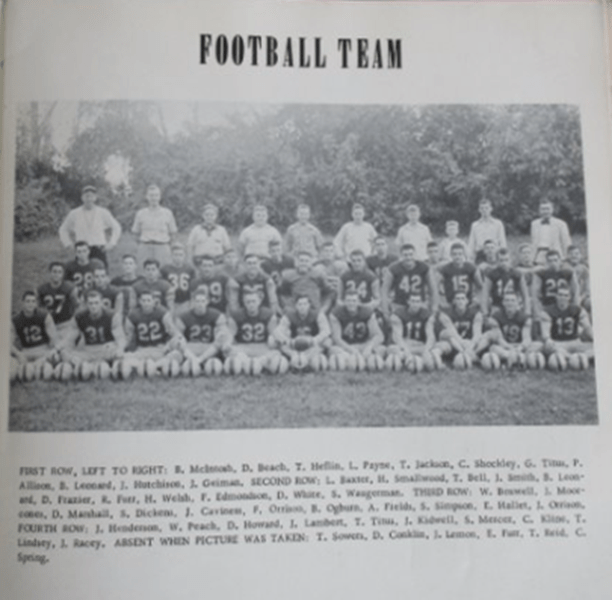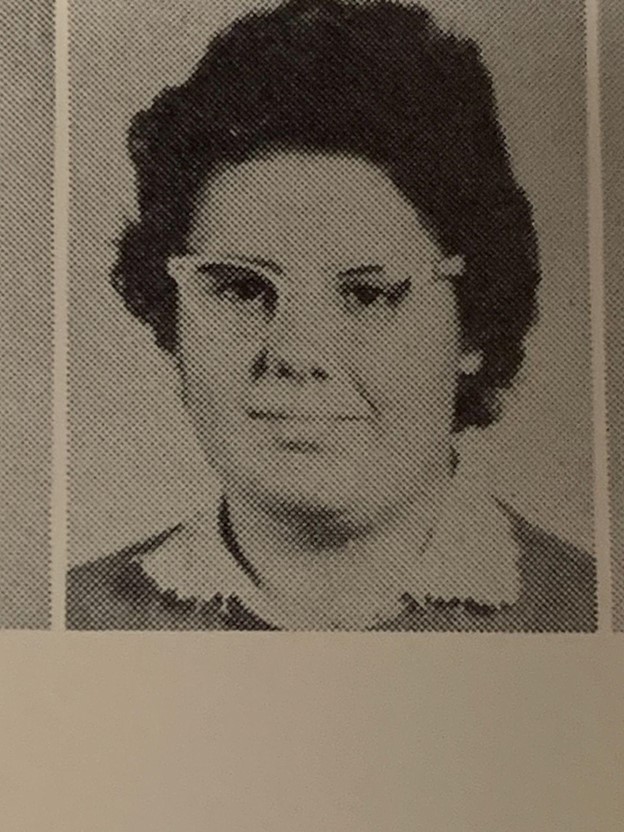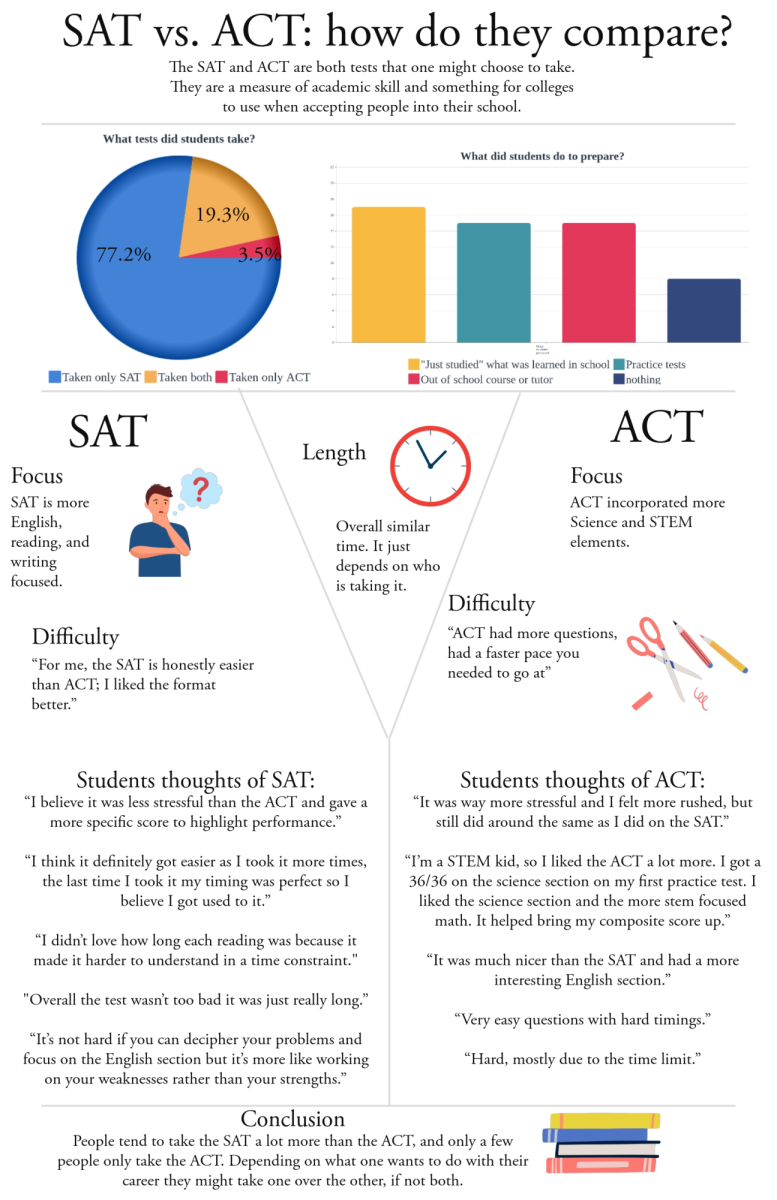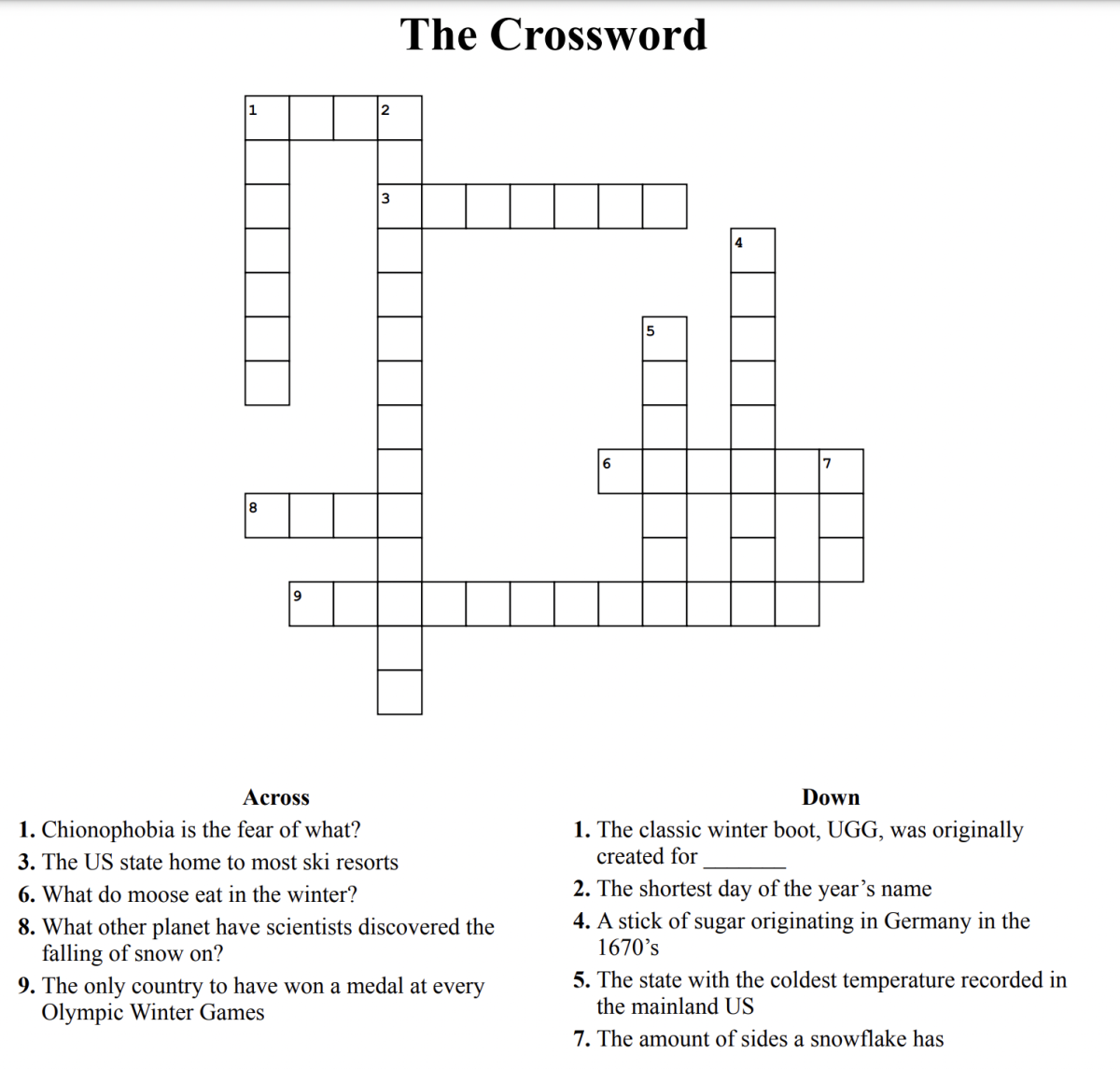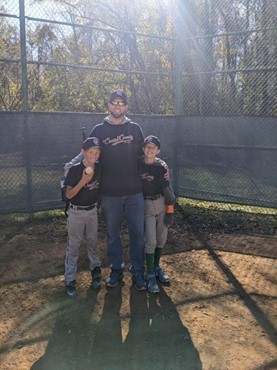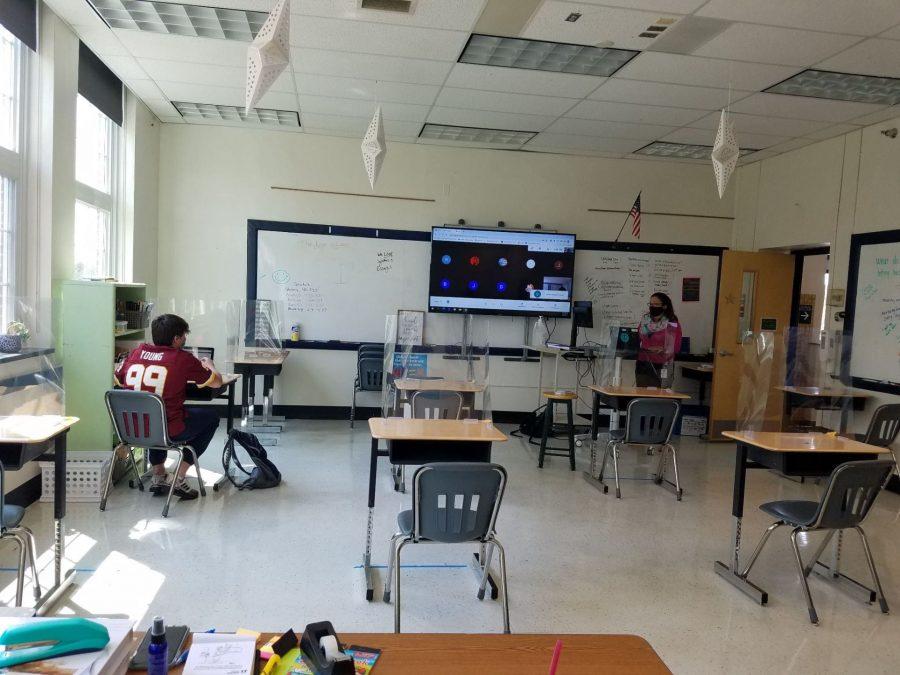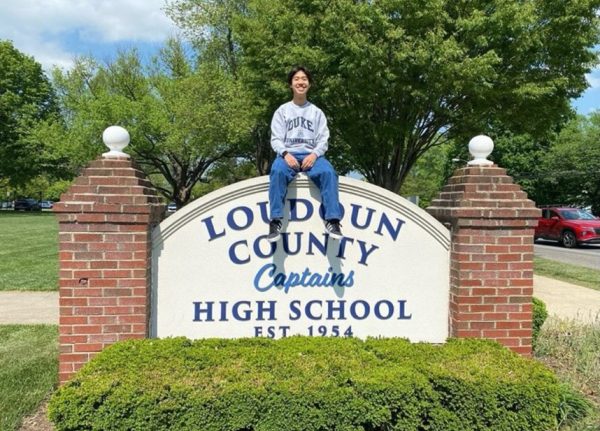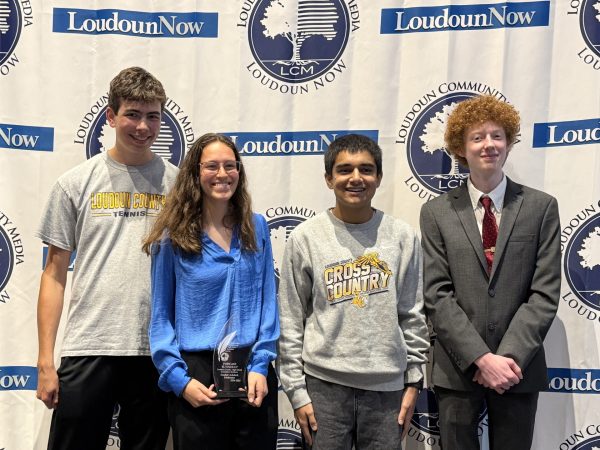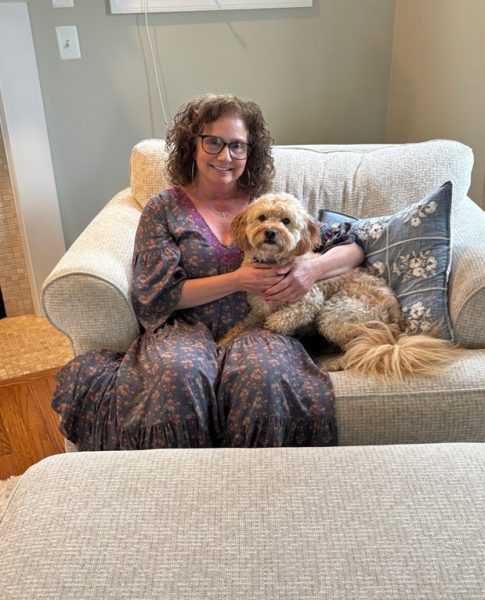Digital Struggles: Virtual learning challenges students and teachers
English teacher Shawn Simms teaches to both her in person and online third block class. Photo by Valerie Egger.
COVID has changed the landscape of education that LCPS provides to its students. Ever since March 13, 2020, school has primarily been online, only opening in March 2021 using hybrid models.
This has provided a challenge for students and educators. During an informal poll, we asked students to rate their online learning experience 1-10. The average of the poll was 4.6.
Many teachers agree that distance learning is not ideal. English teacher Shawn Simms has a similar view to the student body. “Overall, I’d rate it two or three, because really being with the kids is my dream job,” Simms said. Like many, Simms became a teacher because she enjoys the face-to-face interaction with students. “ I really miss reading the room and helping students hands on.”
Students also expressed frustration with the current state of their education.
A distance learning student who voted online school a 4 said, “Don’t ignore us. Ever since hybrid started I feel like the teachers kind of forget we are there,” referring to the fact that teachers now teach students in person at the same time as they teach their remote learnings, a model known as the concurrent teaching model.
An online student who ranked online learning as a 6 said, “I don’t think that there is anything you can change to make it better, but it just doesn’t work for me. I haven’t been able to focus, and I don’t think I have actually learned anything all year.”
Lucia Kennedy, hybrid student, attends class two days a week in person, attending through the computer on the other half of the week. Like many students, she prefers in-person learning.
“I honestly find it so much easier to feel motivated and pay attention when I am actually there in class looking at my teacher and feeling included in the conversation,” she said.
A student who voted hybrid a 7 said, “I was surprised that so few people decided to come back in hybrid; I enjoy seeing and being able to interact with my teachers and the other students.”
Many are expressing a growing concern on what the lack of in person instruction will mean for students. “Kids of all ages that are struggling learners or linguistically challenged or have special needs, those kids are separating so the kids that have are going to be fine will rise up but there will be a gap to the kids who struggle,” Simms said.
This paired with the fact that 28% of U.S students are in person, according to Eduactionnext.org and evidence to suggest that number is larger in other countries. Some teachers and parents are concerned about the education that students are receiving during this COVID era.
“American kids are not in a place of being job competitive, international job competitive,” Simms said. “As we become a more global culture, local society, and multi linguistics we need to prepare you guys for the world’s market, not just the American market.”
Part of this struggle to pay attention and interaction during online classes is due to the lack of cameras being on during classes, says Simms. “I find a very strong correlation between kids who keep their screens on and their engagement and their submission of work,” Simms said. “One day we’re going to look back on this and think, and say it was a big mistake to let kids choose whether to put their screens on or not.”
The idea of having students be required to have their cameras on during class has been proposed. Although this begs the question on if this is an invasion of students’ privacy given that they would have to show their home.
Junior Matthew Siltra said, “I don’t want to show my face. It makes me uncomfortable because of my surroundings.”
Junior Coen Leonard said, “The main reason I dont have my camera on is because I don’t want to forget I have it on.”
There are many challenges with this school year and many are not satisfied with this year’s learning experience. Although there is hope for the future, students are really enjoying hybrid and teachers are finding it effective. COVID cases are dropping and the vaccine rollout has been mostly successful. This was uncharted waters for everyone, and it hasn’t been easy, but, the school board is leaning to have a normal school year next year and are currently planning for a five-day school week with 100% attendance. Our informal poll shows that a majority of the students prefer in person school to online this year.
Your donation will support the student journalists of Loudoun County High School. Your contribution will allow us to purchase equipment and continue to print our issues for the students at our school.


